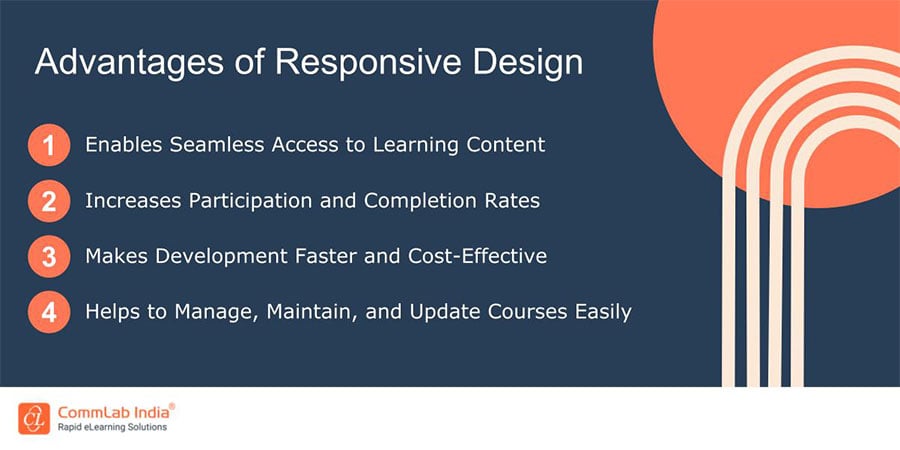Top 6 Cloud-Based LMS Platforms in 2023 for Corporate Solutions

In today's dynamic business landscape, organizations are increasingly recognizing the importance of continuous learning and employee development to achieve success and maintain a competitive edge. Cloud-based Learning Management Systems (LMS) have emerged as a powerful tool to streamline training and development efforts as they offer convenience, flexibility, and scalability, making them an ideal choice for modern businesses. Let's explore the significance, various use cases, and the advantages of using cloud-based LMS platforms, followed by a comprehensive list of 6 popular cloud LMS platforms.
Trying to Choose the Best Cloud-Based LMS Platform in 2023?
Here are a few trending ones you should check out:
- SAP Litmos
- Docebo
- TalentLMS
- Tovuti
- Moodle
- 360Learning
Importance of Cloud-Based LMS Platforms
1. Accessibility and Flexibility
Almost all the popular cloud LMS platforms enable learners to access training materials anytime, anywhere, and from any device with an internet connection. This accessibility and flexibility allow employees to fit learning into their busy schedules and accommodate remote and mobile work scenarios.
2. Cost-Effectiveness
Cloud-based LMS platforms eliminate the need for organizations to invest in expensive hardware and software infrastructure. Instead, they can opt for a subscription-based model, paying only for the features and storage they need, thus reducing upfront costs and ongoing maintenance expenses.
→ Download eBook Now: The State of Learning
3. Scalability
As businesses grow, their training requirements also expand. Cloud-based LMS platforms offer scalable solutions that can easily accommodate an increasing number of learners and content without significant disruptions or additional hardware investments.
4. Security and Data Backup
Reputable Learning management system(LMS) providers employ advanced security measures to protect sensitive training data, safeguarding it against potential breaches. Additionally, cloud platforms usually perform regular data backups, reducing the risk of data loss due to hardware failure. Data security training is one of the most crucial compliances in a corporate organization.
5. Integration Capabilities
Cloud-based LMS platforms often offer seamless integrations with other software and tools, such as HR systems, customer relationship management (CRM) software, or eLearning authoring tools. This integration streamlines data flow and improves efficiency in managing training workflows.
Top 6 Cloud-Based LMS Platforms in 2023
1. Litmos
Litmos continues to be a leading LMS platform known for its user-friendly interface and comprehensive features. It offers a wide range of functionalities, including content creation, course management, reporting, and learning analytics. With its intuitive design, organizations can quickly create and deliver engaging learning content to employees and external stakeholders. Litmos also supports various multimedia formats, making training more interactive and impactful.
2. Docebo
Docebo stands out with its AI-powered learning capabilities, enabling personalized learning experiences for employees. With its intelligent learning algorithm, Docebo can recommend relevant courses and content based on learners' preferences and skill levels. This platform offers social learning features, gamification elements, and mobile learning capabilities, enabling learners to access training anytime, anywhere. Docebo's extensive integrations and API options allow seamless connectivity with other business tools, making it a flexible choice for corporate training.
3. TalentLMS
TalentLMS continues to shine as an easy-to-use cloud LMS, making it particularly suitable for small and medium-sized businesses. It stands out for its simplicity and flexibility, making it an ideal choice for organizations with limited technical expertise. Despite its straightforward approach, TalentLMS offers robust features, including course creation, assessments, reporting, and gamification. It supports multimedia content and offers a modern and responsive user interface, ensuring an engaging learning experience for employees. Here are a few advantages of having a responsive design.

4. Tovuti
Tovuti is a feature-rich cloud-based LMS that provides a comprehensive solution for training and development needs. It offers a broad range of course creation options, such as interactive presentations, quizzes, and multimedia content. Tovuti's robust reporting and analytics enable organizations to gain insights into learner progress and training effectiveness. Additionally, it supports e-commerce functionality, making it suitable for businesses looking to sell courses and training programs externally.
5. Moodle
Moodle is an open-source cloud-based LMS widely used in educational institutions and corporate organizations alike. Its flexible and extensible nature allows organizations to customize the platform to suit their specific training requirements. Moodle offers a wide range of plugins and integrations, allowing for seamless connectivity with various tools and systems. It provides a collaborative learning environment with discussion forums, wikis, and chat functionalities, fostering engagement and knowledge sharing among learners.
6. 360Learning
360Learning is a collaborative cloud-based LMS that promotes social learning and knowledge sharing among learners. The platform's emphasis on peer learning and user-generated content encourages employees to create and share their training materials, promoting a sense of ownership and engagement. 360Learning offers interactive features such as quizzes, surveys, and peer evaluations, making learning a participatory and dynamic experience.
Use Cases of Cloud-Based LMS Platforms
1. Employee Training and Development
Employee training and development is the most common and fundamental use case for cloud-based LMS platforms. These platforms allow organizations to design, deliver, and manage a wide range of training programs tailored to meet the specific needs of their workforce. From onboarding new employees and fostering product knowledge to enhancing soft skills and leadership capabilities, cloud-based LMS platforms offer a versatile solution to support all aspects of employee development.
2. Customer Training
Cloud-based LMS platforms extend their utility beyond internal employee training to include external stakeholders, such as customers, partners, and outsourcing vendors. Providing training to customers is particularly valuable for companies offering complex products or services that require in-depth understanding. For example, software companies can use the LMS to deliver tutorials, user guides, and troubleshooting tips to their customers. In industries like healthcare or technology, companies can use the LMS to educate end-users about product usage and best practices.
3. Extended Enterprise Training
In businesses with extended enterprise models, cloud-based LMS platforms play a vital role in disseminating knowledge across the entire ecosystem. This ecosystem may include external partners, dealers, distributors, franchisees, and other entities. Using the LMS, organizations can provide consistent training materials to all stakeholders, ensuring they adhere to the company's standards, practices, and compliance requirements. Standardizing training across the extended enterprise helps maintain brand consistency, product knowledge, and service quality throughout the network.
4. Compliance and Regulatory Training
Compliance and regulatory training are essential in many industries to meet legal requirements, industry standards, and government regulations. Cloud-based LMS platforms excel in managing and tracking compliance training programs. These platforms can automate the distribution of compliance courses, track learner progress, and generate detailed reports to demonstrate compliance adherence.

Wrapping Up!
Cloud-based LMS platforms play a vital role in driving employee development, knowledge retention, and overall business success. Their accessibility, flexibility, scalability, and integration capabilities make them an indispensable tool for modern organizations seeking to empower their workforce, enhance customer experience, and stay ahead in a competitive market. If you wish to understand more about the state of learning, and how having a cloud-based LMS can help your business, here’s an eBook that comprises research backed data and the latest learning trends.





